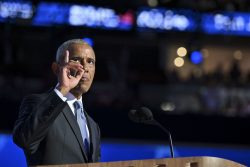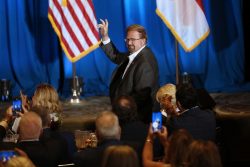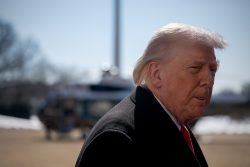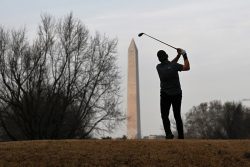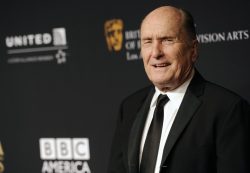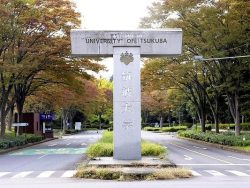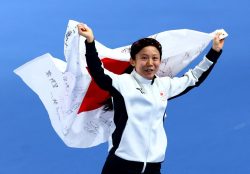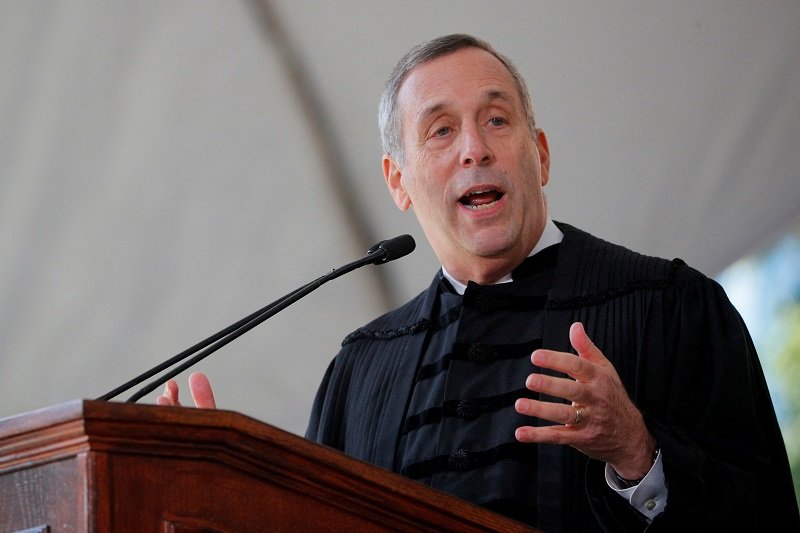
Lawrence Bacow speaks during his inauguration as the 29th President of Harvard University in Cambridge, Massachusetts, U.S., October 5, 2018
11:06 JST, June 9, 2022
Lawrence S. Bacow, who has led Harvard University as president through the tumult of the coronavirus pandemic and an intensive reckoning with its historic role in slavery and racial discrimination, announced Wednesday that he will step down after the next academic year.
Bacow, 70, will have served five years as Harvard’s 29th president by the time he leaves one of the world’s most influential education leadership positions on June 30, 2023. That is less than half the tenure of his predecessor, Drew Gilpin Faust, who was president for 11 years.
“There is never a good time to leave a job like this one, but now seems right to me,” Bacow said in a statement to the Harvard community. “Through our collective efforts, we have found our way through the pandemic. We have worked together to sustain Harvard through change and through storm, and collectively we have made Harvard better and stronger in countless ways.”
Bacow’s announcement comes at a time of transition for several prominent universities and after an exceptionally challenging two-plus years of fallout from the public health crisis. In recent months the presidents of Columbia University, Dartmouth College, Howard University and the Massachusetts Institute of Technology, among others, have declared plans to step down.
In early March 2020, as the coronavirus was spreading rapidly across the United States, Harvard was one of the first universities to send students home. The pivot to online classes and seemingly endless questions about virus testing, infection levels, masking policies, remote instruction, hybrid learning, student gap years, mental health care, vaccination requirements, faculty safety, financial troubles and more created a chaotic and unprecedented situation for colleges and universities everywhere. Harvard, the nation’s oldest institution of higher education, was no exception.
Bacow and his wife, Adele, were infected in March 2020. After they recovered from covid-19, Bacow told the Harvard Gazette that he had gotten tested at that early moment because of an autoimmune condition that made him vulnerable to infection. “And when we tested positive I thought, ‘This is going to be interesting,’ ” Bacow said.
In one of the key decisions Bacow made that year, Harvard joined with MIT in a lawsuit challenging a Trump administration order that would have required international students to take classes in person despite the prevalence of remote instruction in fall 2020. There were fears that some students could be deported, or that schools could be pressured to reopen in person prematurely. But the administration backed down in the face of the legal challenge.
Leaders of the Harvard Corporation, the university’s principal governing board, praised Bacow’s handling of the health crisis. William F. Lee, the outgoing senior fellow on the board, and Penny Pritzker, who will take over from Lee on July 1, said in a statement that Bacow had worked “relentlessly to keep Harvard’s core activities of education, research, and service moving forward under conditions that none of us would have envisioned.”
Bacow served several years on the board before he became president in July 2018. He was previously president of Tufts University and spent much of his career at MIT, holding positions as a professor of environmental studies, chair of the faculty and chancellor.
In September 2019, Bacow caused an uproar with a remark that compared a fundraising policy, in which wealthy alumni would not be “owned” by individual Harvard schools, to the 13th Amendment, which banned slavery. The remark drew instant criticism as an inappropriate comparison, and Bacow said afterward that he regretted causing offense.
Under Bacow, Harvard undertook a major review of its ties to slavery and racial discrimination. The university released a landmark report in April that found Harvard leaders, faculty and staff had enslaved more than 70 individuals during the 17th and 18th centuries when slavery was legal in Massachusetts. The report also explored Harvard’s extensive ties to wealth generated from enslaved persons’ labor in the South and Caribbean, and the connections between some of its presidents and faculty to the eugenics movement and other theories used to promote white supremacy.
“Harvard benefited from and in some ways perpetuated practices that were profoundly immoral,” Bacow said at the time. “Consequently, I believe we bear a moral responsibility to do what we can to address the persistent corrosive effects of those historical practices on individuals, on Harvard, and on our society.”
In his final year, Bacow and Harvard will be in the spotlight again as the Supreme Court considers a lawsuit that challenges the university’s use of race as a factor in admissions. Oral arguments in that case are expected in the fall. Bacow has been a fierce proponent of keeping the race-conscious admissions policy. In January, he said the court’s decision to take up the case “puts at risk 40 years of legal precedent granting colleges and universities the freedom and flexibility to create diverse campus communities.”
Top Articles in News Services
-

Prudential Life Expected to Face Inspection over Fraud
-

Hong Kong Ex-Publisher Jimmy Lai’s Sentence Raises International Outcry as China Defends It
-

Japan’s Nikkei Stock Average Touches 58,000 as Yen, Jgbs Rally on Election Fallout (UPDATE 1)
-

Trump Names Former Federal Reserve Governor Warsh as the Next Fed Chair, Replacing Powell
-

Suzuki Overtakes Nissan as Japan’s Third‑Largest Automaker in 2025
JN ACCESS RANKING
-

Japan Institute to Use Domestic Commercial Optical Lattice Clock to Set Japan Standard Time
-

Israeli Ambassador to Japan Speaks about Japan’s Role in the Reconstruction of Gaza
-

Man Infected with Measles May Have Come in Contact with Many People in Tokyo, Went to Store, Restaurant Around When Symptoms Emerged
-

Prudential Life Insurance Plans to Fully Compensate for Damages Caused by Fraudulent Actions Without Waiting for Third-Party Committee Review
-

Woman with Measles Visited Hospital in Tokyo Multiple Times Before Being Diagnosed with Disease


